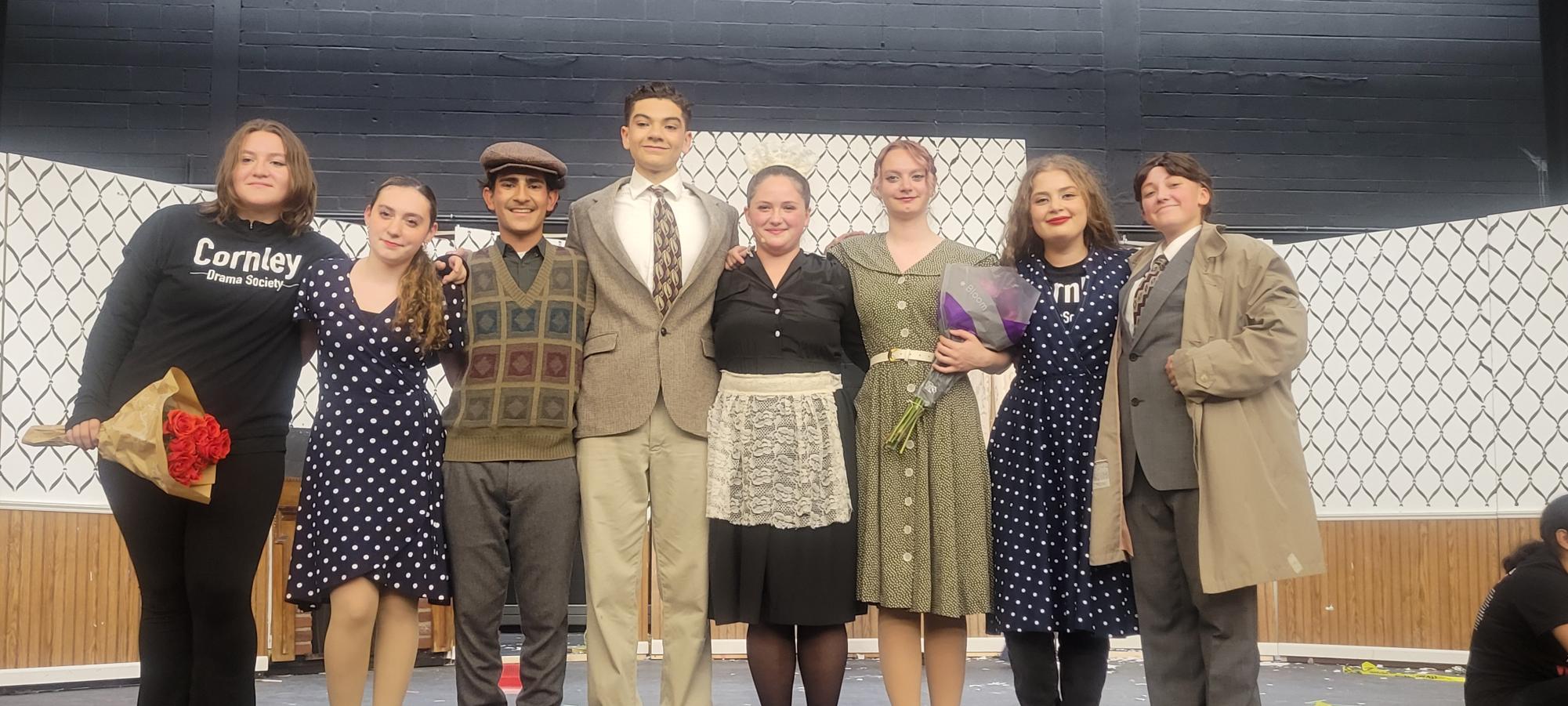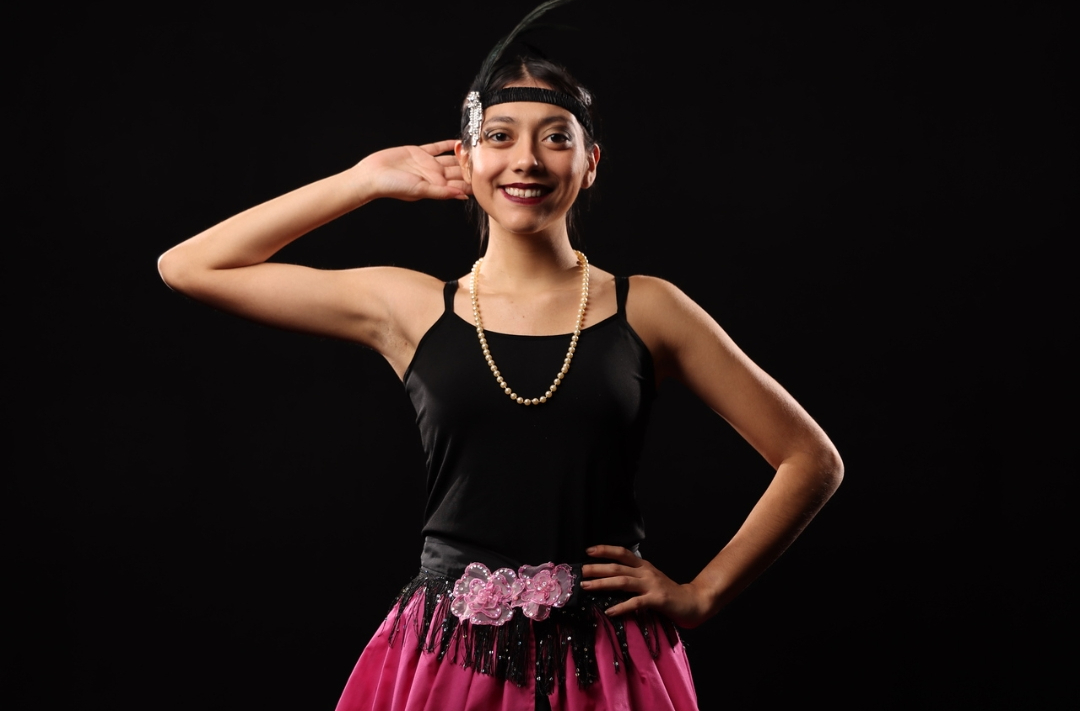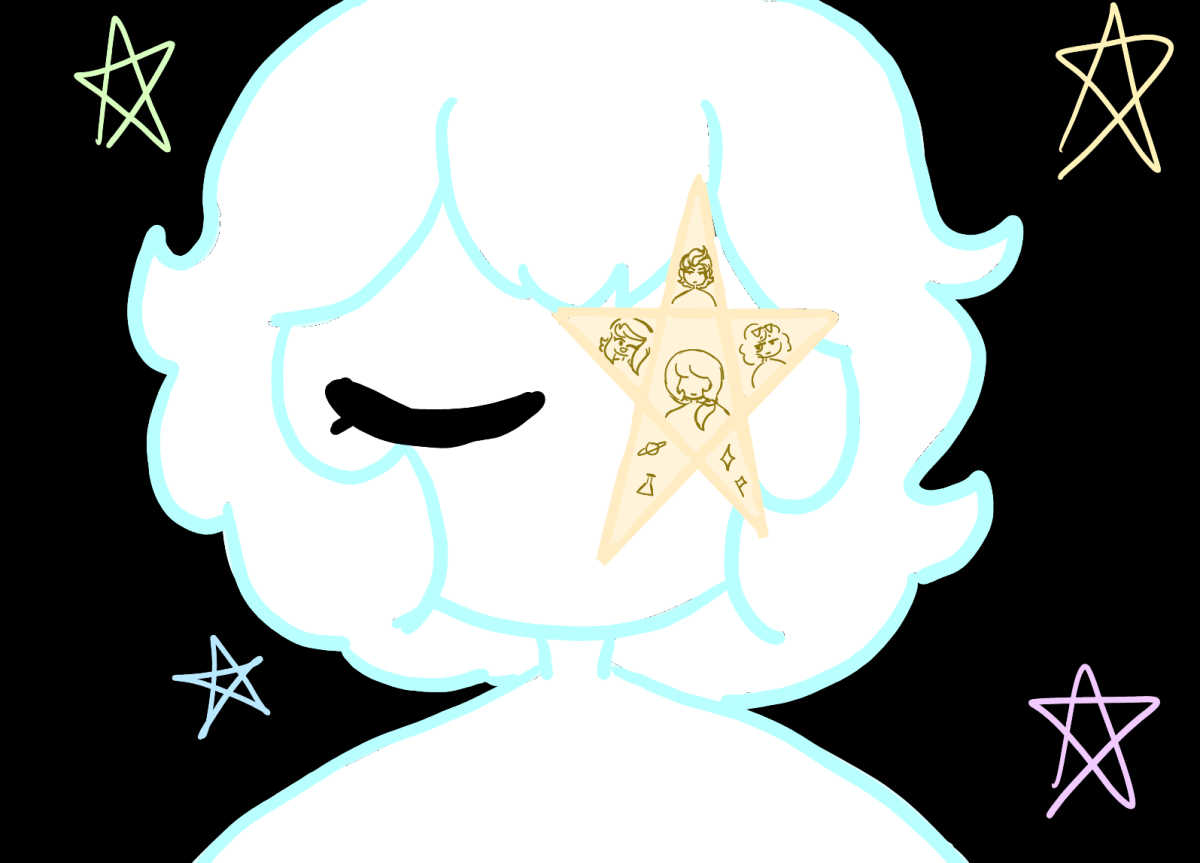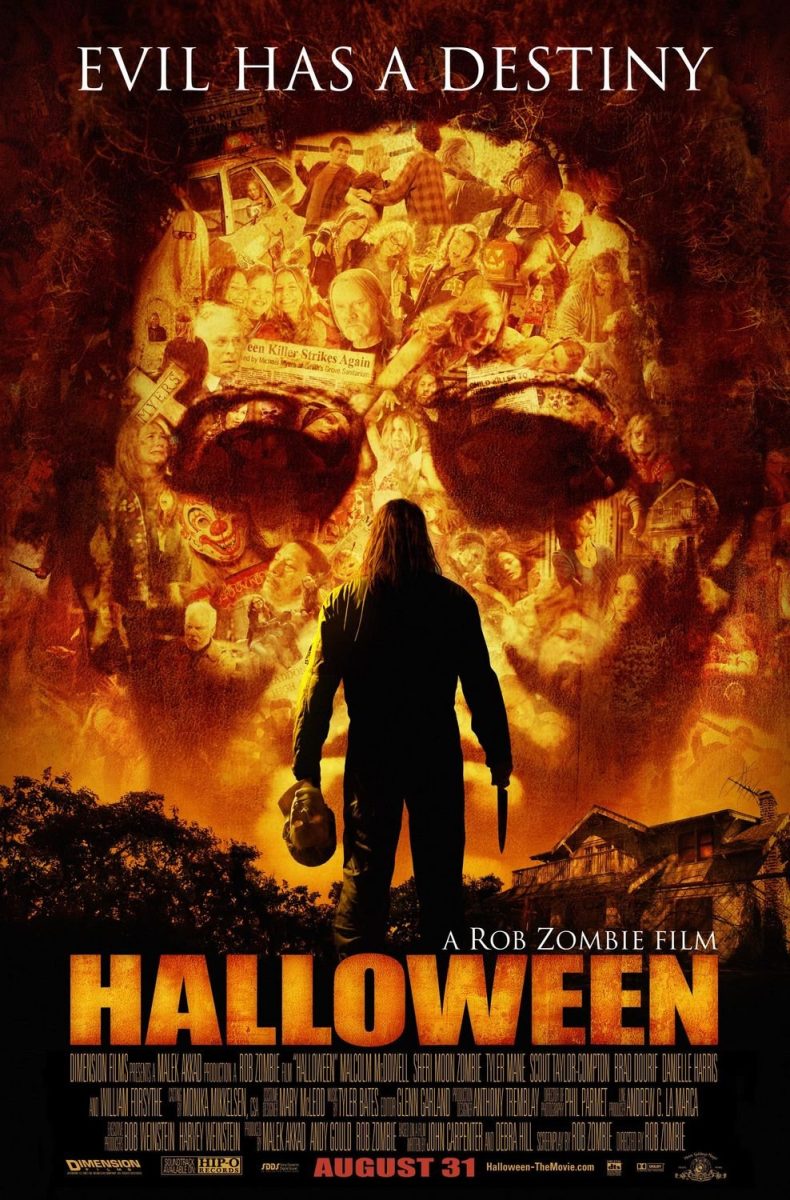
This year’s fall EPHS Theater production was the hilarious physical comedy: The Play That Goes Wrong. TPTGW is a “show within a show” that follows the less-than-stellar Cornley Drama Society attempting to perform a 1950s Murder Mystery play. As one could probably guess from the title, the show does not go as they planned. The set falls apart, actors forget their lines, and, generally, nothing goes smoothly. There are “stage crew” characters, who portray the society’s Stage Manager and Light/Sound Director, as well as “cast-member” characters, who portray not only a high school student in the Drama Society but also that character’s role in the murder mystery. For example, one of the roles is Sandra, an arrogant ingenue who believes she is the best actress in the society, and her role in the murder mystery is Florence Colleymore, the fiancee of the man murdered. EPHS’ Cast of the show had to balance playing both of these characters at once, and the “stage crew” characters had to perfectly embody real run crew members.
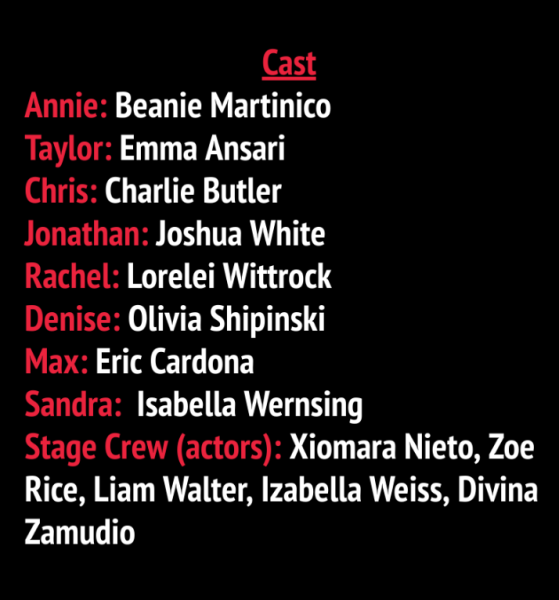
Something that differentiated this show from past years was the size of the cast; there were only 8 speaking roles and 13 cast members total. To put that into perspective, there were almost 40 people in last year’s Chicago the Musical, and over 20 in Puffs. Casting was extremely selective for Director Noah Pligge, as 29 people auditioned for this show. The final casting was as follows:
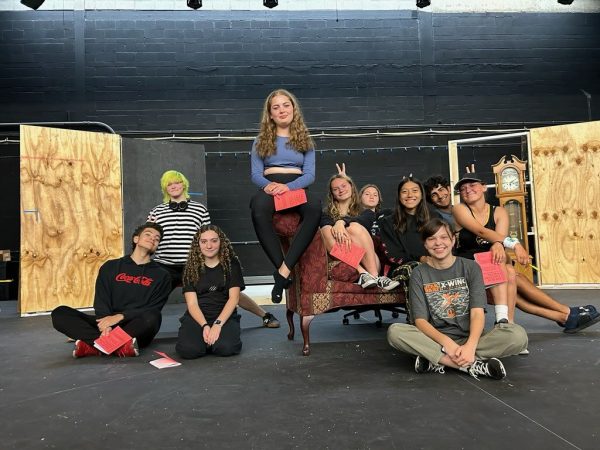
Because of the small numbers, each cast member was given nearly double the responsibility: more lines, more blocking, and more stage time to memorize and practice. On top of all of that, the cast only had about two months to prepare everything. Here’s an interview with the director, Noah Pligge. He works at Regina Dominican High School and directs the EPHS theater after school:
Noah Pligge
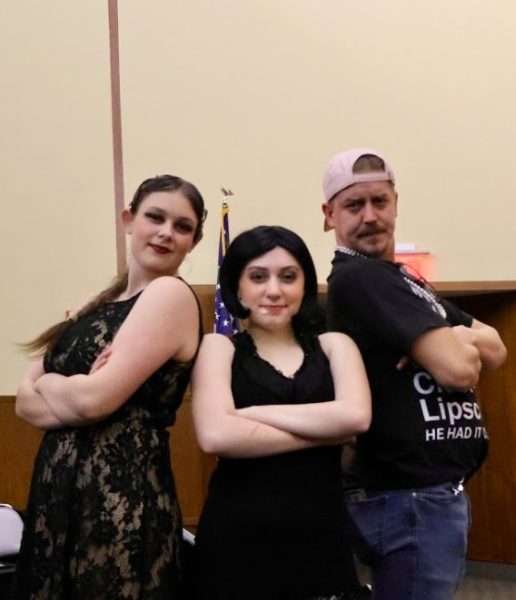
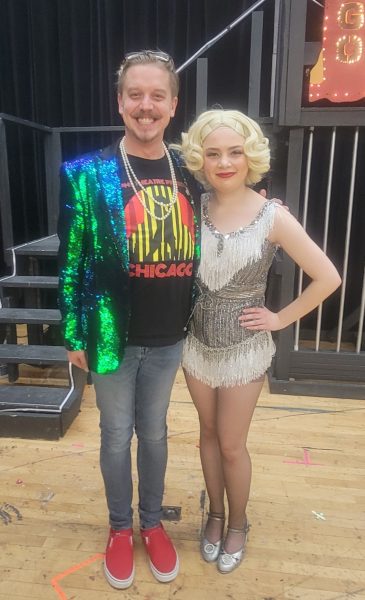
This was the smallest cast show we’ve had in the current student body’s time here. What made you choose this show?
N: I was looking for a farce [physical comedy] to do this fall and fell upon this one! The problem with farces is that there aren’t any out there that have a lot of parts. I chose this show because of the humor. There is so much physicality that needs to be done correctly, and I felt that the body of students would do a great job portraying that comedy. The Play That Goes Wrong involves impeccable timing for the humor to go off without a hitch. This was something I wanted to focus on this year, and I felt that this show was the perfect one to do so!
What was the casting process like? How were you able to select the eight speaking role cast members out of the twenty nine that auditioned?
N: The casting process starts off with a very low-stakes virtual monologue that gives each student an opportunity to show me what they have! Once the in person auditions happen, I am able to gauge the students interests and abilities in what roles would be best for them. It was very difficult to select the eight speaking role cast members. I needed to take into account their availability, their chemistry with the other parts, the physical acting, and their timing; many things come into account when selecting leads. Once I made a choice on one role, it got much easier to find where the other roles fit.
Below are interviews with all eight leads of TPTGW, about both their time in this production and their experience with theater as a whole.
Emma Ansari
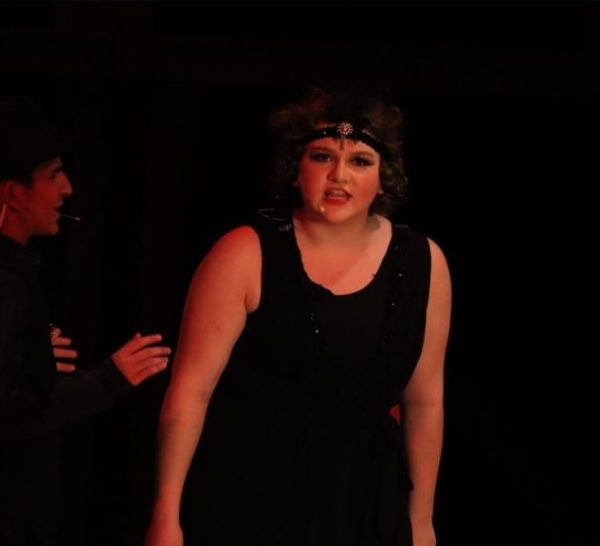
Emma is a sophomore, and this was her fourth production at EPHS.
You were named best newcomer of the year last year. What were your expectations for not just this show but the upcoming musical as well?
E: This play was a harder show to put on because of the many things that are supposed to go wrong, so I didn’t expect this show to be easy. A musical is also always harder to do because of the singing and the dancing involved.
Emma was one of two sophomores with a speaking role.
You were one of the few underclassmen in this show. What’s one thing you valued in watching so many upperclassmen perform around you?
E: I valued the amount of dedication the upperclassman put into the show. I’m amazed how some people can come straight to rehearsal after dance practice or a game and run show after show.
Charlie Butler
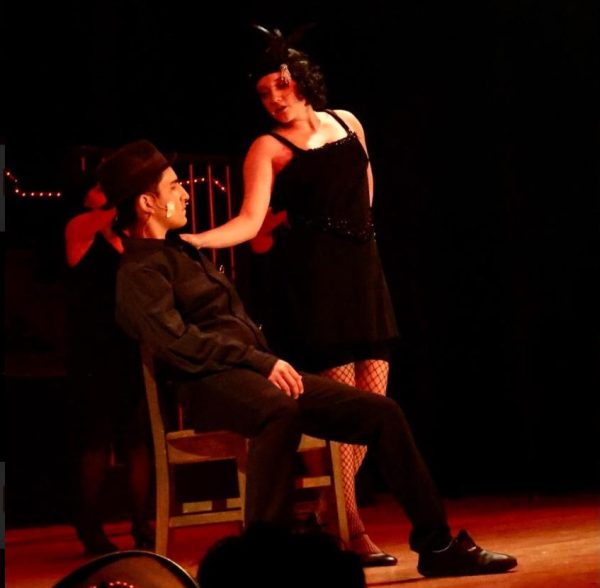
Charlie is a senior, and this was their tenth show at EPHS.
This was your first lead role in an EPHS production. What was the most exciting part of this role and did being a lead live up to your expectations?
C: It did! I’m used to playing side characters- specifically one note comedy characters- this felt like something similar, yet bigger. I still feel very similar to how I did before, just having to memorize more lines and a more integral role in the story. Specifically referencing past year’s plays, my “first” was a narrator role with 4 or 5 lines, two of which were monologues; my next few were background or sides with 0 to 10-ish lines; and last year I played two characters who had a few small comedy lines. All of which was still work and still fun. The most exciting part of this role was having a big part in the story. That did feel different and a little special. Playing Chris/Inspector Carter was a big opportunity but internally it felt very similar to any other show.
Charlie is not only an officer, but they are the Thespian President.
How does being the Thespian President affect your role in day-to-day rehearsals?
C: I’d have to say it didn’t. I feel like I’m at the same level as everyone else in the room because I am. It adds to my current workload, but I don’t always have stuff going on so most of the time I don’t feel any difference from being Thespian President on the stage versus how I did before.
Eric Cardona
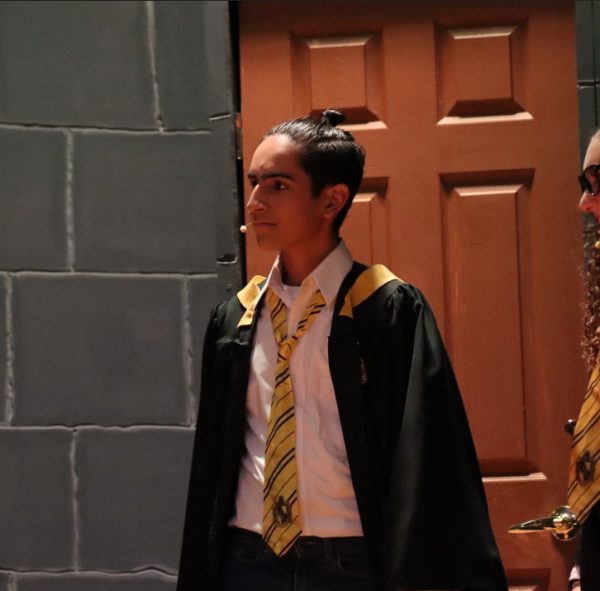
Eric is a junior, and this play marked his fifth production at EPHS.
You’re an extremely involved person. How do you balance your energy between everything?
E: I am very involved with soccer, band, and theater. The balance between them is difficult but all is well with a minute to minute schedule with compromises for conflicts.
Eric’s lead role contained pages and pages of long dialogue and scene blocking- all new for him, as this is his first starring role.
What was your memorization process for this show?
E: I had a technique of reading through the lines I struggle with and then try to repeat them from memory until memorized.
Beanie Martinico
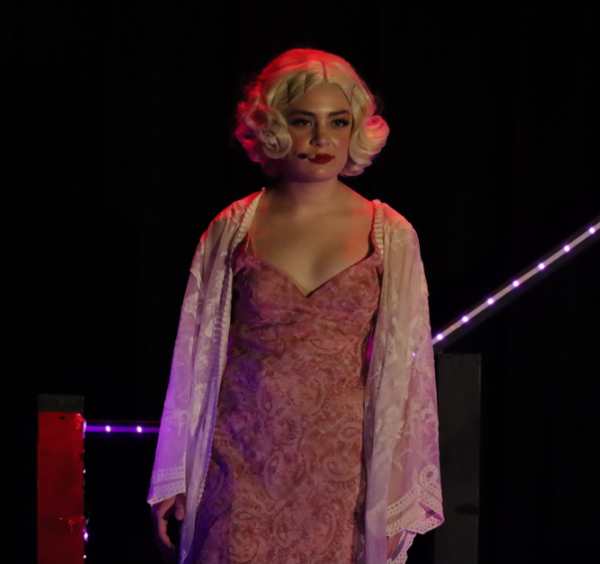
Beanie is a junior as well, and this was her fifth show at EPHS.
How does the versatility of your roles challenge you each show?
B: Each show makes me feel like a first-time actress. This was my first show with such a heavy emphasis on physical comedy, and it was extremely out of my comfort zone, but I loved it! I’m so used to playing characters with a heavy emphasis on emotional expression and body language, that playing something where the emphasis is entirely on the physical aspects of what I do is very jarring. I’ve gone from playing a precocious child, to a moody teenager, a murderess singer, and finally an overworked Stage Manager. It’s all very entertaining.
Beanie’s role required a lot of physical interactions with the set.
How did you ensure your safety while also playing to the character?
B: Throwing yourself through a window (which is something I had to do) is dangerous- however we made sure to have people on hand backstage at all times, as well as cushioned landings behind the set. There were multiple through-the-window or door things that happen, and it’s all about practice! I would be lying if I said it wasn’t a little terrifying, but I also know at the end of the day I wouldn’t participate in anything too risky.
Olivia Shipinski
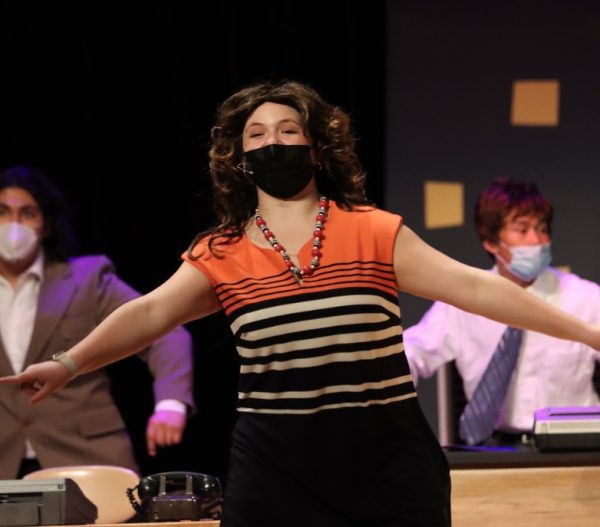
Olivia is a senior, and this play was her eighth show at EPHS. She’s one of the most experienced Thespians in the cast and has participated in a very wide variety of productions.
You’ve been in theater a long time. How do you deal with challenges that arise throughout a production?
O: To deal with the challenges that arise, I do my best to better the things I can control myself and I also just trust the process. Obviously there are things I can work on, for example knowing my lines or practicing dances we have to learn. These are things I can do on my own time to help rehearsals and the overall production go more smoothly by doing my part. When it comes to a challenge that affects the whole group, however, I really put my trust in our director because I know he will get it done. I try to keep a positive mindset and if I just go with the flow, it usually works out in the end!
Olivia also happens to be one of our Thespian Officers, a leader within the EPHS Theater.
What qualities of a leader do you try to embody?
O: The leadership qualities I try to embody are encouragement, organization, and productivity. I really try to be positive and welcoming to those who are trying something new. I think knowing that people are supporting you, even if you make mistakes, is something really important to have in a group. I also try to be organized to the best of my abilities. If I am organized, the things I am a part of can go more smoothly, and I can also make sure that those I am leading are on the same page. Lastly, when it comes to leading, I really want to be productive. I am a very busy person so I want to make sure when something is scheduled there is actually a clear direction we are going in or just clear goals we are trying to achieve in general. If we as leaders have goals, it is easier to be structured and have others participate.
Bella Wernsing
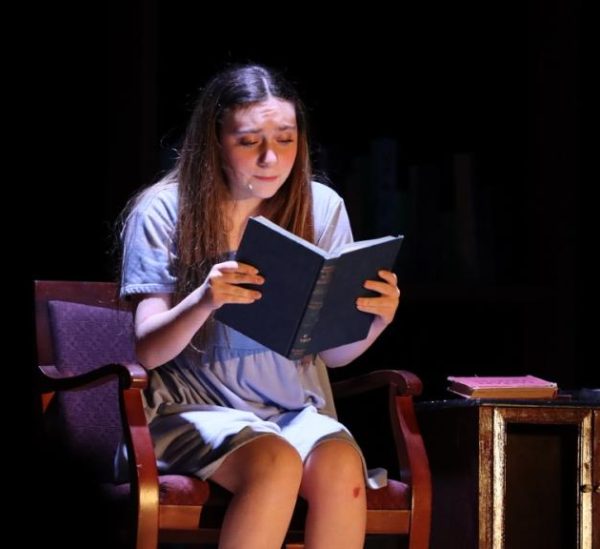
Bella is a junior, and this was her eighth show at EPHS. The more time she has spent in theater, the more she has developed variety as an actress.
You’ve played many diverse roles throughout your EPHS theater career. What made this role different from all the other ones?
B: Although I have had many diverse roles, I do feel like this one was a bit different since I had to really step out of my shell and be as dramatic as possible. I also had to act as if I passed out during multiple scenes which can be a challenge to make it look real and funny. Another difference that separates this role from my previous roles is the way I had to stay in character throughout all the chaos that was going on. I always have a hard time not laughing when something funny happens, so it’s definitely a challenge to keep quiet when everything around me is falling apart.
Bella’s roles have ranged from ensemble members to lead characters.
Out of every role you’ve ever had, which one has been the most challenging for you personally?
B: Out of all the roles I’ve had, I would say playing Velma Kelly in the musical Chicago was my most challenging role. Before getting Velma, I would always play younger and less mature roles. Velma Kelly is a very bold, confident, and mature role and it took a lot of adjusting to be able to showcase her character. The intense dance moves and vocals along with many challenging songs were insanely hard for me, but I’m still so glad I got the opportunity to play her and will forever be grateful for the improvement and things I learned while playing that role.
Josh White
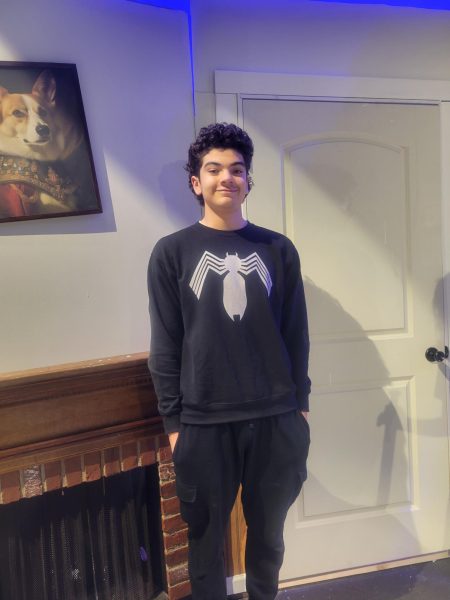
For most EPHS theater members, this is one of many shows that they’ve done. While this production had no freshman cast members, it did have a first time sophomore.
This was your first time ever in an EPHS theater production. What made you decide to audition for the first time as a sophomore?
J: My choice to join theater this year came from my love and appreciation for movies. I have a huge respect for the arts and I figured I should go ahead and try to see if that would be something I like for myself. And so far, I am really enjoying my time with the cast and rehearsing lines on stage
How have you been enjoying the environment of theater? Is it what you thought it’d be?
J: All the cast members were very kind and welcoming, and I had lots of fun just chatting in between practicing our parts. As stressful as I thought it would be, I’ve found the atmosphere in theater to be very light-hearted. I think the play itself was very clever and witty.
Lorelei Wittrock
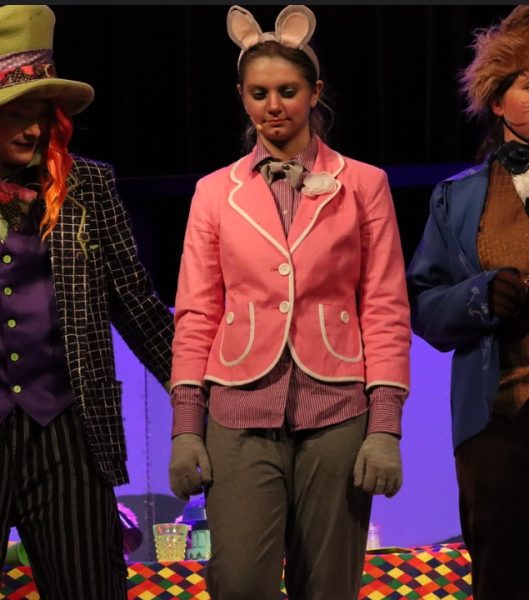
Lorelei is a junior; this was her sixth show at EPHS. Her character was almost always present on stage, and that constant presence can be difficult for many actors.
What was the hardest part about being such an involved character in the show?
L: The hardest part about playing a role like this was the amount of lines I had. I swear, I studied that script up and down, but there were still lines that tripped me up to no end.
Because of her characters stage time, Lorelei participated in a wide variety of exciting scene work.
What was your favorite scene to perform/what was the best part of playing your character?
L: My favorite scene to perform was the fight scene between [my character] and Eric’s character. It was easily one of the most fun and physical ones I had. The ending was also a very close second. My favorite part about playing the character was probably how slimy she can be at times. Another was how angry [my character] would get at the other members of cast and crew when something went wrong.
Stage Crew Ensemble
While there were only eight lead speaking parts available, Pligge decided to cast five extra Stage Crew ensemble members to help with the on-scene chaos of the show. This ensemble included Xiomara Nieto, a senior, who’s been in ten shows with her favorite being Chicago. Liam Walter, a sophomore, whose been a part of three shows- this was his first time in cast. Bella Weiss, a junior, whose been in six shows with her favorite role being from Puffs. Zoe Rice, a senior, who has been in eight shows with her favorites being Once on This Island and Puffs. Finally, Divina Zamudio, a senior, whose been in four shows and her favorite was Chicago.
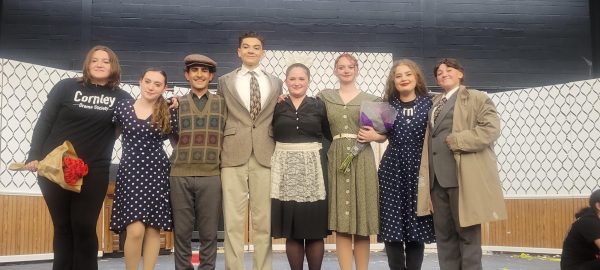
In conclusion, this style of production was a new challenge for all 13 cast members. They were challenged to embody a new style of comedy, and work with a complex set. This production faced more technical difficulties than normal, but it was a learning process for everyone involved. Despite the challenges, the cast is excited for what’s to come in future shows.
Works Cited:
Ansari, Emma. Personal communication, October 25th 2024.
Butler, Charlie. Personal communication, October 28th 2024.
Cardona, Erc. Personal communication, October 17th 2024.
Pligge, Noah. Personal communication, October 24th 2024.
Nieto, Xiomara. Personal communication, October 25th 2024.
Rice, Zoe. Personal communication, October 25th 2024.
Shipinski, Olivia. Personal communication, October 22nd 2024.
Walter, Liam, Personal communication, October 18th 2024.
Weiss, Bella. Personal communication, October 17th 2024.
Wernsing, Bella. Personal communication, October 21st 2024.
White, Josh. Personal communication, October 20th 2024.
Wittrock, Lorelei. Personal communication, October 17th 2024.
Zamudio, Divina. Personal communication, October 25th 2024.

